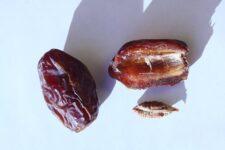We are living in uncertain times, and with uncertainty brings a level of heightened stress. As I write this, the COVID-19 global pandemic is at its peak in the US: most businesses are shut, many people have lost their jobs, and thousands are being diagnosed with a potentially deadly virus each day. We have truly seen nothing like it and so it’s natural that it would cause a high level of stress.
What is the stress response?
When the body perceives stress the hypothalamus up in the brain triggers the pituitary to sound the alarm to our adrenal glands to secrete stress hormones like cortisol, norepinephrine, and epinephrine (also known as adrenaline). Adrenaline, along with norepinephrine, quickly increases our heart rate, blood pressure, and oxygen which makes it possible for our bodies to get away from danger quickly and to hyper concentrate. Cortisol takes a bit longer to produce but when we are in survival mode cortisol is lifesaving because it regulates your fluid and blood pressure while sending fewer resources to non-crucial organ systems.
Why is this bad?
Acute stress isn’t the problem, the issue becomes when we are under long term stress and there is no return to homeostasis or a place of calm. When we are in a state of heightened stress, also known as the Fight or Flight or an activated Sympathetic Nervous System, it brings our body into a catabolic or a breakdown state. When we are in a chronic breakdown state, many organ systems begin to falter such as our immune system, digestion, reproduction and metabolism which can lead to unwanted symptoms like stubborn weight gain, acne, high blood sugar, and menstrual cycle issues.
How is all this stress impacting your menstrual cycle & fertility?
Fertility
The body is smart and it is always trying to protect you. The body can’t differentiate between the stress of the current pandemic or being chased by a tiger and the body knows to not create life when it is under threat. It knows that now is not the baby making time, therefore it stops or decreases the hormones that would create that baby. It will impair ovulation and deplete progesterone, two nonnegotiables when it comes to creating a child. Progesterone is the hormone created at ovulation from the corpus luteum which is a temporary gland and it is responsible to continue & maintain the build up of the lining of the uterus (endometrium) which creates a hospitable environment for implantation. In short healthy levels of progesterone are crucial for carrying a baby to term.
Menstrual Cycle
Even if you aren’t trying to make a baby, you may be trying to get your period back or have it be a pleasant experience. Yes, it is possible to have a happy period experience! Unfortunately, we aren’t able to do that if we are chronically stressed. Prolonged stress can actually cause us to lose our period altogether, have it come at inconvenient times. or suppress progesterone so much that it is very heavy and painful. Additionally, perceived stress can double the risk of severe PMS according to Dr. Lara Briden, because adrenaline directly blocks progesterone receptors and depletes GABA. GABA is a neurotransmitter that supports sleep & relaxation Progesterone counterbalances estrogen, reduces inflammation and calms your mood by creating GABA so without it, you can count on a PMS heavy month. And here’s the real kicker, if you’ve been stressed in the past and it suppressed your progesterone you could be experiencing a delayed effect of stress with PMS weeks later. That’s because the period you are having now originated 100 days ago when your ovarian follicle began its journey to ovulation.
What can you do about it?
We’ve established that in order to ditch the hormone issues, we have to ditch the stress. Here are my top 7 tips for managing stress and improving your hormone health. Try one at a time and note if they work for you.
1. 7/11 Breathing Technique: Breath in for 7 seconds and out for 11. When we breathe out longer than we breathe in we actually automatically drop into the parasympathetic nervous system which is the rest and digest state we should aim to operate from.
2. Sitting & Being: One of my favorite tips right now is simply sitting and being with my emotions, just allowing it to be with the knowledge that this too shall pass and that any negative feelings I’m having are valid too.
3. Journaling: Many times my monkey mind will get the best of me, I find getting my thoughts out on paper to be really helpful. Additionally, oftentimes I will journal at the top of the day and ask myself, “What one thing would make today a win?” and “What do I need today?”. Conversely, at the end of the day, I will journal “What 3 wins did I have today?”, “What 3 observations do I have today?” and “What 3 things must I get done tomorrow?”.
 4. Meditating: Meditation is the direct counteract to stress. It enables the body’s relaxation response to work (parasympathetic nervous system) which brings the body to a calm state, helping the body repair itself and prevent new damage from the physical effects of stress.
4. Meditating: Meditation is the direct counteract to stress. It enables the body’s relaxation response to work (parasympathetic nervous system) which brings the body to a calm state, helping the body repair itself and prevent new damage from the physical effects of stress.
5. Moving: Exercise is a huge stress buster! Pick your favorite thing to move to and do it as much as feels good for your body!
6. Singing: Singing releases energy and promotes your vagus nerve. Supporting your vagal tone activates the parasympathetic nervous system, and having a higher vagal tone means that your body can relax faster after stress.
7. Supplements/Herbs: Talk with your health care practitioner about what herbs and supplements could be supportive for you. Some of my favorites for PMS are Magnesium & Vitamin B6 whereas for stress I love to support my body with L-Theanine and Ashwagandha. The important thing here is to identify the root causes of your symptoms and work with someone you trust to discuss which, if any, supplements or herbs could support your unique body.
Sophie Shepherd is a Functional Diagnostic Nutrition Practitioner and Founder of SHE. Sophie works with women 1:1 and in groups on restoring optimal menstrual health through the use of root cause diagnostic testing and health coaching to implement lasting lifestyle and dietary changes.






